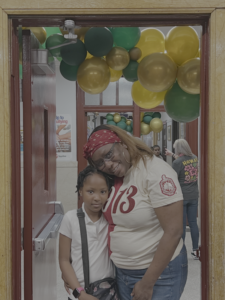
Judeen and her daughter, following an afterschool performance in which her daughter participated.
In 2023, The Child Center of NY received a grant from the MacMillan Family Foundation to support the launch of the Parents as Partners Project (PAPP) across the 20 NYC DOE-funded Community Schools in Queens and Brooklyn for which The Child Center serves as lead community-based organization. PAPP emphasizes that school success relies on collaboration among schools, parents, students, and other stakeholders. The primary objective is to train and empower teams of parent ambassadors from each of our Community Schools to learn from each other and lead parent engagement efforts on the ground. By facilitating a supportive network of engaged families, PAPP strengthens not only our schools, but also our communities at large, demonstrating that together we can build a brighter future for all our children.
Since parent voices are the foundation of PAPP, we asked Judeen, this past school year’s PAPP president and mom to a student at P.S. 123 in Jamaica, Queens, to share her thoughts on what PAPP is all about and why she and her family find it so meaningful. The interview has been lightly edited for length and clarity.
The Child Center of NY: Can you describe PAPP from your perspective as a parent?
Judeen: PAPP is just a ball of information that helps parents achieve what they want to accomplish at their school. Parents get together and share their ideas and struggles related to their children’s schools. We share our goals, what we want to accomplish, and really discover how important parents’ voices are. We support each other, and it’s helpful to find out what’s worked and not worked at other schools.
We are also lucky to have Saran [Shields, Vice President of Youth Development], who has so much information and gives us incredible resources. With input from Saran and other parents, families are getting connected with resources like food pantries and housing.
We also do fun things like a sip and paint (with apple cider!) and a sports day barbecue for Father’s Day. We are working with our new physical education teacher, Mr. Chip Howell, to have another sports day, since it was so well-attended.
I have been active in the parents’ association at my daughter’s school since she was in kindergarten. All the information I learn from being a part of PAPP helps me be effective in my advocacy for my daughter and in my position in the parents’ association.
Can you give an example?
One of the most important ways it’s helped me is that I learned about the rights I have as a parent—how to be able to walk into the school and have a dialogue with the principal or assistant principal. Since being a part of PAPP, I have a great relationship with Principal [Anthony] Hooks. There was an issue where I didn’t think my daughter was placed in an appropriate class. She has high reading and math scores, and I thought she would benefit from being challenged more. I spoke to Mr. Hooks, he looked into the issue, and we got it resolved.
Being a part of PAPP, I learned how strong my voice is, and I’ve been able to convey this to other parents—how to have a meeting with the principal, how to support the school. I learned that it’s all about trust. If the principal and families believe that we all have the same shared goal, we can be there for the students, and I’m there to help the parents as best as I can. It’s a good relationship, and I love it. Getting information for myself and being an ambassador for other parents is the number one goal.
What are some of your proudest accomplishments as president of PAPP?
My proudest accomplishment is the friendships we’ve built! I have met parents whose children are in middle school, coaching me about what’s going to happen when my daughter reaches middle school. We all exchange information, and there’s so much of it. We always need, like, an extra 40 minutes at each meeting! And then we bring that information back to our own schools and PTAs.
I’m also proud of the ideas we’ve generated to get the parents out and not be afraid to advocate for their kids. English is not the first language for a lot of parents, and they don’t always feel comfortable speaking up. They want to be like Casper the Ghost, drop their kids off and pick them up and then disappear. Lita, another parent in the PA whose child graduated last year, and I worked hard to help them understand that they have rights; you have a child in the school and the right to speak to the principal or a teacher, and they want to hear from you.
A successful initiative we started was rewarding kids with “paws bucks” to use in the school store for bringing their parents to a meeting. We would talk in groups, and there is usually a parent in a group that speaks both languages and can serve as a translator. We discovered that the number one problem parents were having was common core math and how to help their children with it, since we were unfamiliar with it ourselves. We brought in a math coach to help the parents understand and teach common core math. We also had a literacy coach. In every meeting, we teach so that parents can implement the lesson at home. If a parent is stuck, we give them resources for seeking help.
We learned that the most convenient time for the meetings was during Saturday Academy, when students who are struggling with a subject can come in for extra assistance. The teachers are already there, and parents can ask questions and get resources. For example, many parents didn’t know how to log onto Raz math. The literacy coach showed them which books are good for their children to read and how to utilize resources at the school. Once parents started attending these meetings, they felt more empowered and became more engaged. And that’s what it’s all about.
What do you hope to accomplish in future years?
I am hoping that the PAPP is here to stay! My goal for my daughter’s school is to have 50 regularly active parents. Right now, it’s about 30. I want to let them all know, you are part of the school, and your voice does matter.
Is there anything you would like to add?
I just love the team. Mr. Brian [Pantakoek, P.S. 123 Community School Program Director] is the bomb! He has so much energy. You can tell he loves what he does. He is always there for the parents and loves the students. Saran has so many resources and is always available. Mr. Hooks is great. And of course, the parents. You really feel that everyone is in it together for the kids, and it’s a great feeling.
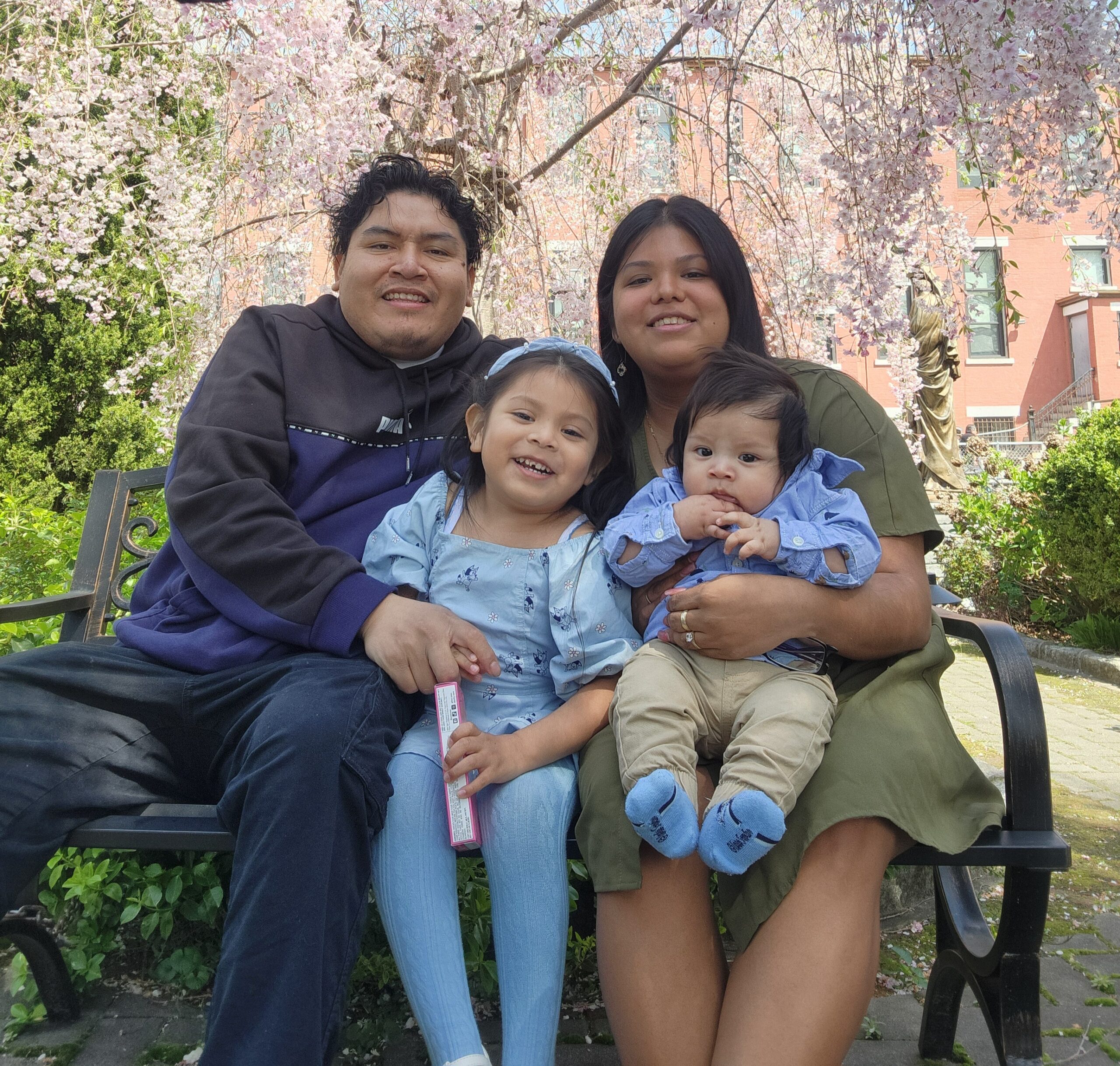 Wow! Where do I begin? I want to first say thank you for the opportunity to share my story. I am forever grateful for all that The Child Center of NY has done for my family and me. Before TCCNY, I had no idea the amount of impact an organization like this could have on a family.
Wow! Where do I begin? I want to first say thank you for the opportunity to share my story. I am forever grateful for all that The Child Center of NY has done for my family and me. Before TCCNY, I had no idea the amount of impact an organization like this could have on a family.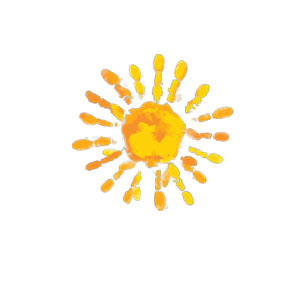 FV is a 10-year-old boy who receives therapy at
FV is a 10-year-old boy who receives therapy at 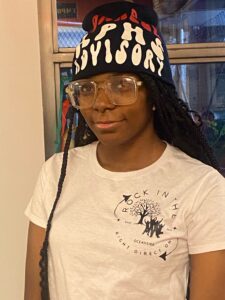
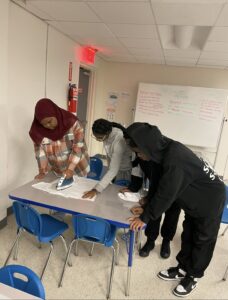
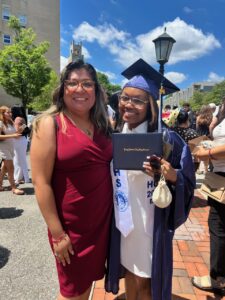
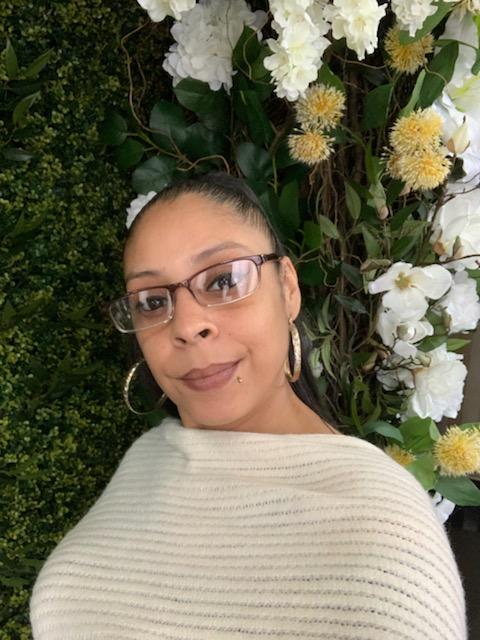
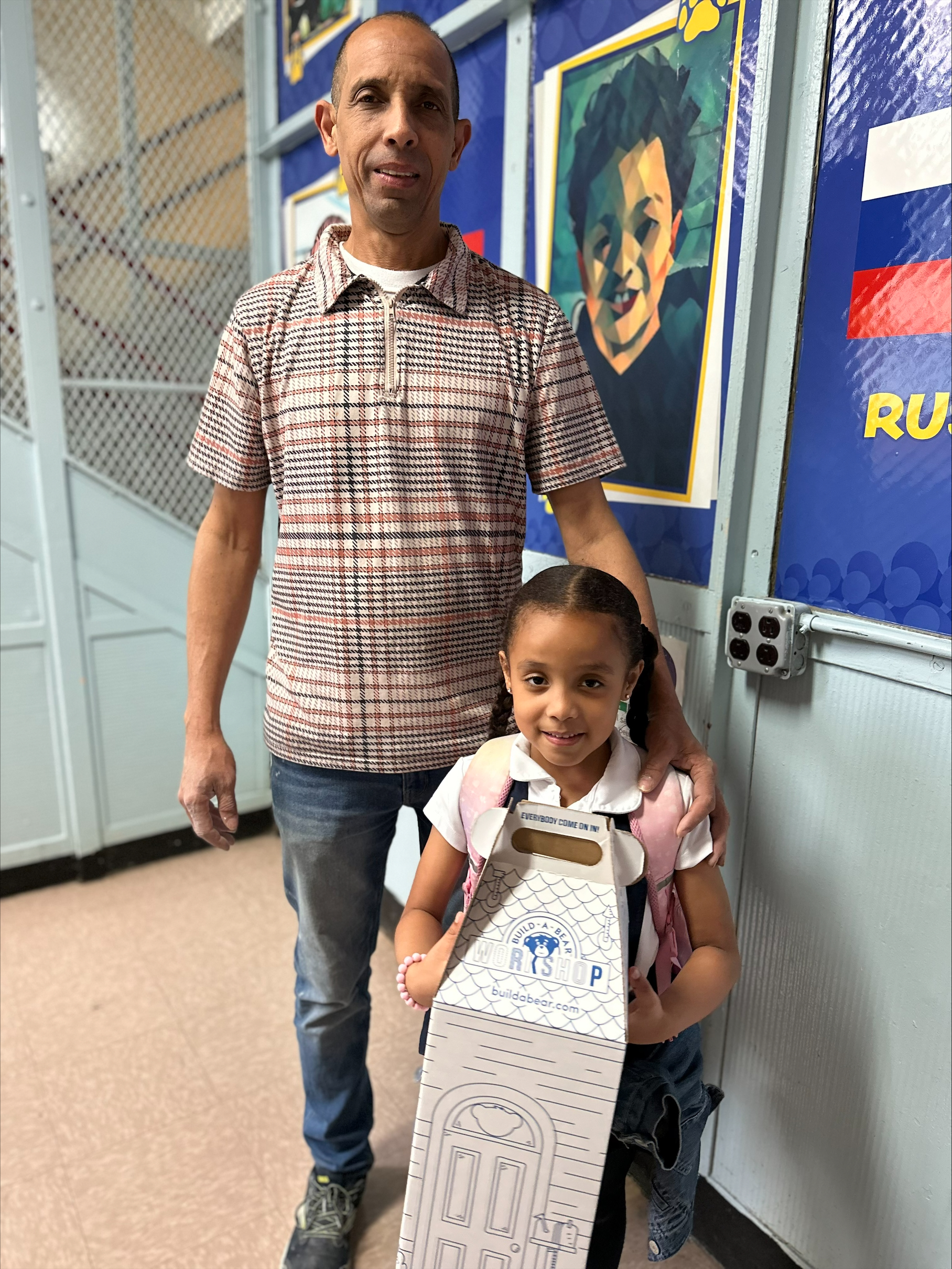
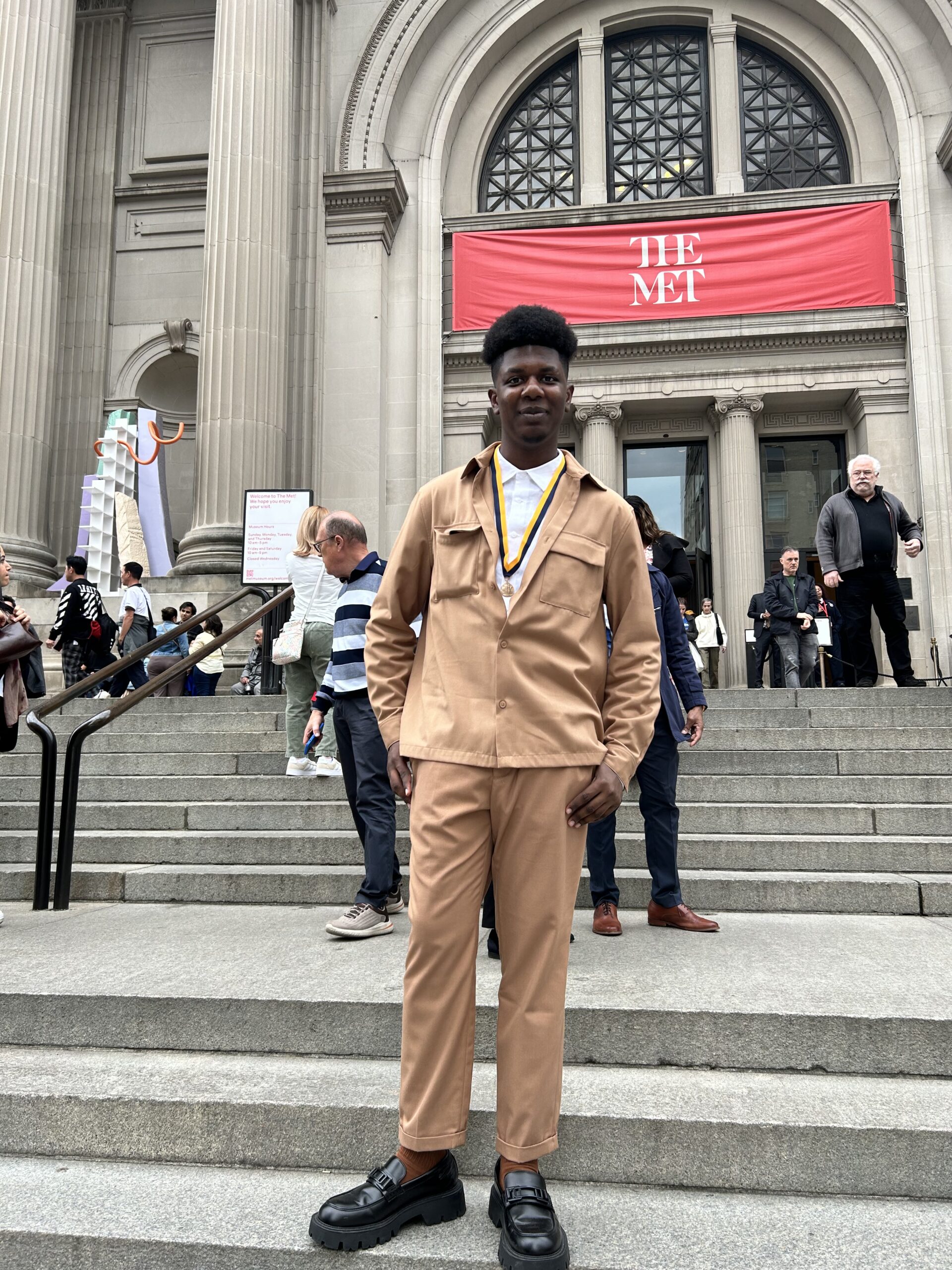
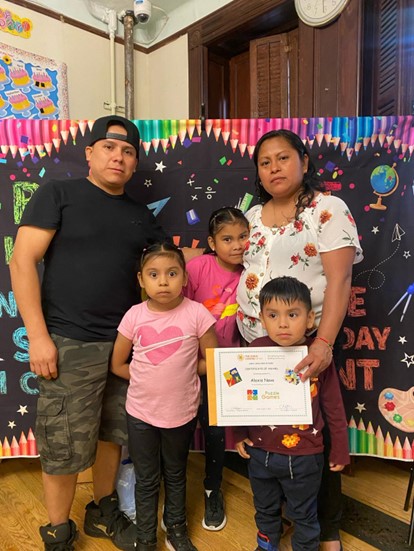

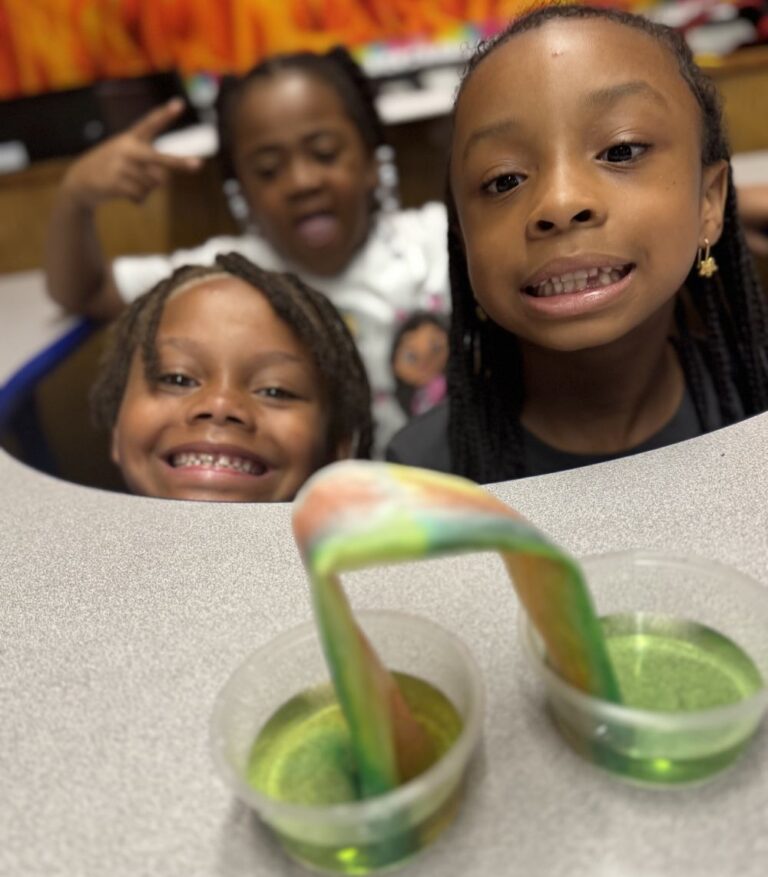
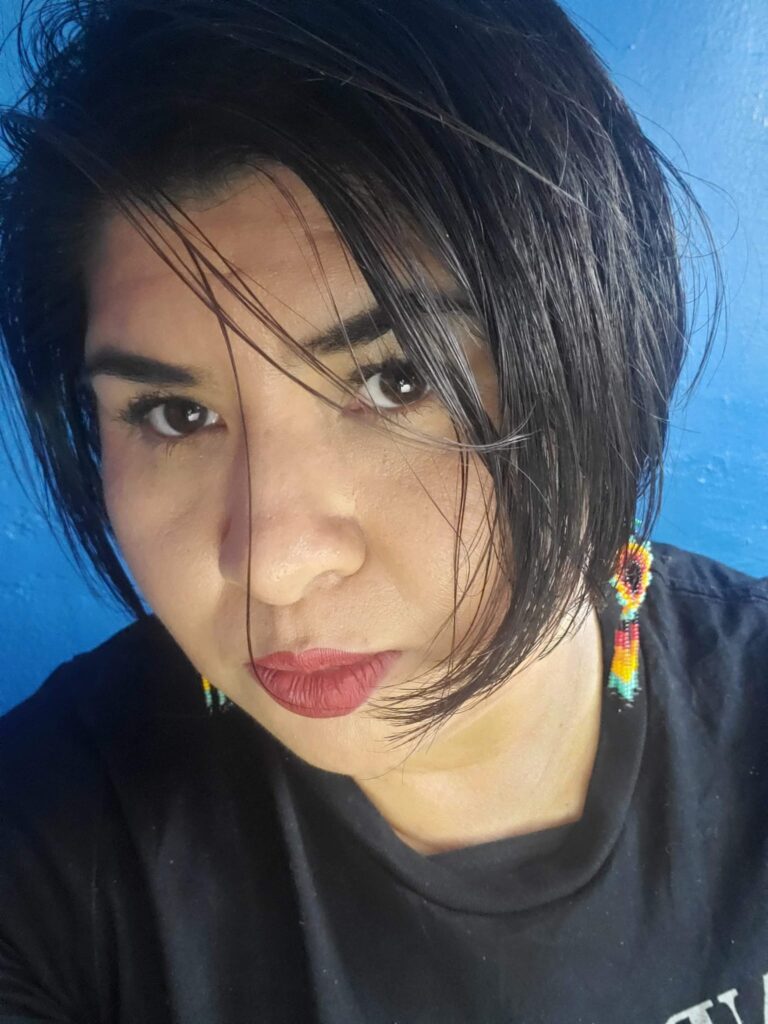
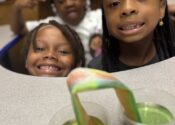



You must be logged in to post a comment.